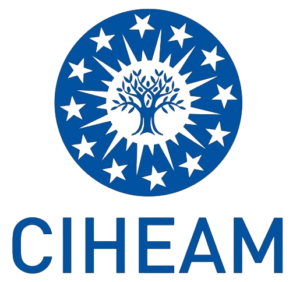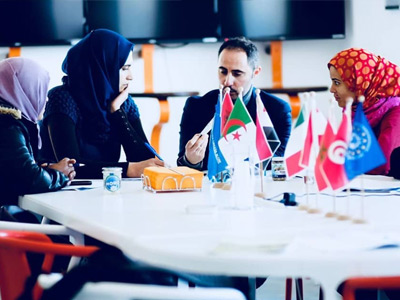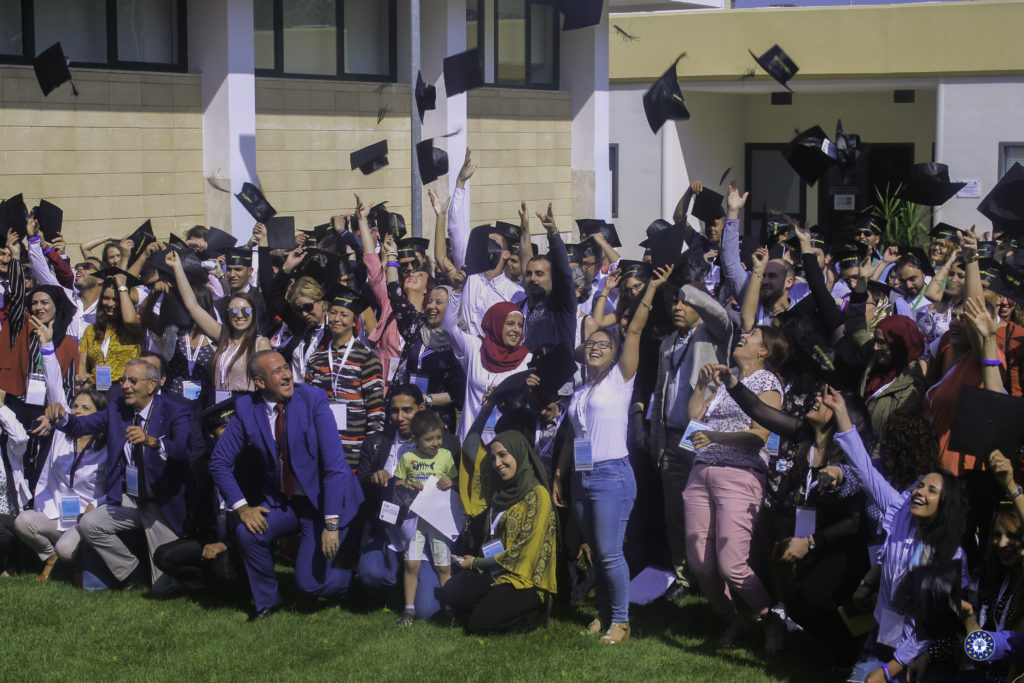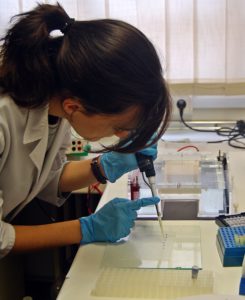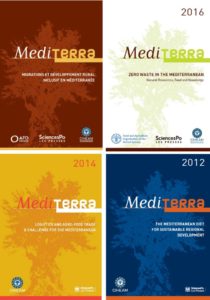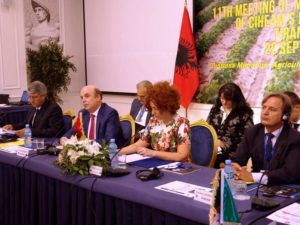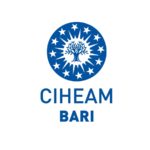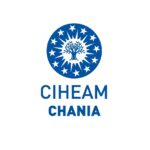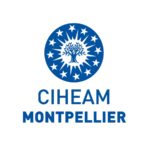Threats to Food Security: A Profitable Regression for Mediterranean Agriculture?
Article by Pr. Mohammed Sadiki (President of the CIHEAM Governing Board) and Mr Plácido Plaza (Secretary-General of the CIHEAM) on the occasion of the publication of the CIHEAM Report “The COVID 19 Pandemic: Threats to Food Security in the Mediterranean Region”. (29/07/2020)

The effects of the COVID 19 pandemic on the economies of countries in the Mediterranean region are starting to be visible and are likely to have unprecedented consequences and impact. As in every crisis, it is, of course, the poorest and fragile populations who suffer the most serious consequences.
Among the most fragile, the vulnerable populations of rural and agricultural areas of the Mediterranean region, who are already suffering for several years from climate change impacts, the reduction of natural resources but also from development inequalities.
The pandemic first threatened the health of populations, then their jobs or work, most often in the informal economy, and now weighs on the food security. Indeed, the 4 pillars that characterize "food security", according to the FAO, which are the availability, access, use and price stability of food products, have been impacted, as a corollary of supply and demand instability which risks worsening if the right decisions are not made and the appropriate responses are not provided.
As a significant stakeholder in the field of training, research, agricultural cooperation and political dialogue in the Mediterranean since 1962, it was important for the CIHEAM to contribute to a better understanding and analysis of the short and medium-term consequences of the COVID 19 on food security of some of its member countries in order to anticipate measures to be taken by all stakeholders and to mitigate the consequences and negative impacts.
The CIHEAM has therefore wished to draft a first report, fruit of a collective effort made by the various bodies of the Centre, through the four Mediterranean Agronomic Institutes and the different partners, above all, the delegates of its Member States. This analysis is focused on a sample of seven countries: Albania, Algeria, Egypt, Lebanon, Morocco, Tunisia and Turkey.
Besides the comparative analyses with an economic approach and the assessment of future threats such as the decline in remittances by nationals residing abroad, the collapse in tourism, the decline in export earnings and the drop in the price of oil, the report shed light on the new dynamics created and solidarity implemented.
Innovative dynamics and solidarity at work
Indeed, in these countries, several current initiatives should provide support to agricultural production and food accessibility, shedding new light on the principle of “food sovereignty”, while others are taking into consideration rural and agricultural public policies for more strategic and innovative policies, mobilising technical, social and institutional innovations in favour of a more sustainable management of natural resources (water, biodiversity, soil, etc.) and of communities with potential for creativity and involvement which are still underestimated.
These aspects which are less present in the public debate, nevertheless demonstrate the abilities of southern countries in the management of crises. The different experiences in the management of crises linked to epidemics, younger populations and resilience to shocks are among the assets that have helped countries to resist in recent months. It is therefore important to learn from this experience and to know how to capitalize and consolidate achievements.
Crisis and opportunities for the Mediterranean: towards greater cooperation?
At the CIHEAM we believe that this crisis can pave the way for a renewed regional collaboration by strengthening the achievements and lead to a deep reflection upon new instruments to set up to address the fight against rural poverty and food insecurity and the management of natural resources.
It challenges us once again on the emergency to review the foundations of our food systems to make them more sustainable in the use of natural resources and socially responsible so that our food can be produced by our regions, thus contributing to the creation of promising, attractive professions with high-added social value.
There can be no health without food and without agriculture. More than ever before, today, the concept of “One Heath” takes on its full meaning. Indeed, human health, animal health and ecosystem health are all interconnected!
More than ever the issue raised in the new context of COVID-19 is a matter of concern to CIHEAM. We want to fully play our role of capacity building and facilitator of exchanges on agricultures issues within the Mediterranean area, and to promote sustainable development models for rural and coastal zone areas.
The drafting and implementation of the innovative policy measures will require capacity building and enhanced support to the governments, public bodies and both public and private actors and stakeholders. Again, the CIHEAM, with its long experience is ready and willing to fully play this role.
Indeed, it is in collaboration with the women and men who live around this “sea in the middle of the land”, with scientists, academics and researchers, with representatives of civil society, private companies and institutional partners that we must find and formulate new, more suitable and lasting solutions. This cooperative work can only be successful if the conditions for a constructive dialogue are met if knowledge sharing and the knowledge mobility are encouraged and if training courses are adapted to provide appropriate responses to the needs of territories and the aspirations of Mediterranean women and men, especially the youngest generations, for a better and peaceful future.
DOWNLOAD THE JOINT COMMUNICATION AND THE REPORT :
CIHEAM Report on COVID-19 impacts in the Mediterranean Region


